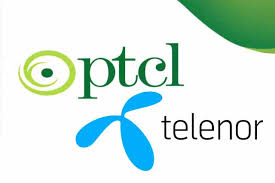ISLAMABAD: The Policy Board of Pakistan Telecommunication Company Limited (PTCL) has accepted the stringent terms and conditions set by the Competition Commission of Pakistan (CCP) for its proposed merger with Telenor Pakistan.
PTCL has formally submitted its commitment to comply with the conditions tied to the $400 million acquisition of Telenor Pakistan, clearing the path for the CCP to issue its long-awaited order on the landmark merger, pending for over 18 months.
After the merger, Ufone–Telenor Pakistan will become almost as large as Jazz, pushing Zong into third place in the country’s telecom market.
A CCP official acknowledged that the deal will create a highly concentrated operator, raising potential dominance concerns. “We also examined the risk of PTCL abusing its dominant position post-merger,” the official said. However, the regulator noted that its conditional approval framework, which includes safeguards on pricing, interconnection, infrastructure sharing, and fair competition, should mitigate those risks. “If enforced effectively, the merger could deliver efficiencies, improve service quality, cut infrastructure duplication, and generate cost savings,” the official added.
The CCP carried out one of the most exhaustive merger reviews in its history, applying the Substantial Lessening of Competition (SLC) Test to assess possible distortions across cellular services, long-distance and international (LDI) services, fixed-line telephony, leased lines, and IP bandwidth.
Between September 2024 and August 2025, the Commission held five open hearings and multiple confidential sessions with PTCL, Telenor, and other stakeholders. It demanded extensive documentation, and during the process, instances of malpractice and mismanagement within PTCL also surfaced.
According to PTCL sources, the company has agreed to a business plan outlining fresh investment in Pakistan. While the process saw repeated delays, all required information was eventually submitted to the CCP.
Officials revealed that the Commission came under significant political and corporate pressure to fast-track approval, but Chairman Dr. Kabir Sidhu insisted on transparency, refusing to proceed without full compliance. Earlier this year, PTCL’s counsel argued that the CCP had become “functus officio,” but the Commission dismissed the claim, maintaining that statutory timelines were intact and that public interest required a thorough probe.
The PTCL–Telenor merger is in line with international precedent, where large telecom deals have taken similar timeframes—Vodafone’s €17.5 billion merger with Three UK took nearly 23 months, while the Sprint–T-Mobile deal in the U.S. required 22 months. Against this backdrop, CCP’s 18-month review reflects global best practices for complex, market-shaping transactions.
The case has become a litmus test of CCP’s independence, showing that even politically sensitive and high-stakes deals can be subjected to rigorous scrutiny in the name of consumer protection and fair competition.
Discover more from Brackly News
Subscribe to get the latest posts sent to your email.



